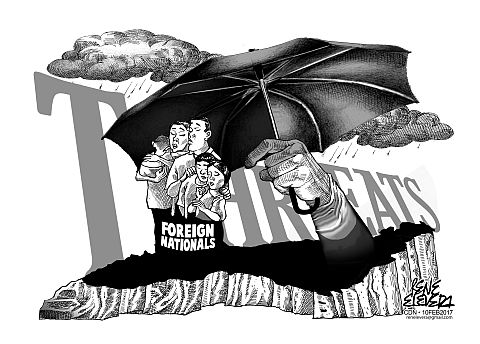
The existence of a Korean crime syndicate in Cebu and the rest of the country reminds us of those countless movies involving a large foreign community in a foreign land in which the host government takes pains to talk things through with the foreigners to arrive at a common solution to their problem.
By their we mean both the government and the foreign community since whatever affects their community also affects the domestic community and by extension the government which maintains more than just diplomatic relations with them.
President Rodrigo Duterte’s disclosure that the Korean mafia (gangsters, as the police later called them) operates strongest in Cebu came amid the murder of South Korean businessman Jee Ick-joo right within Camp Crame.
With Chief Supt. Noli Taliño’s admission of the Korean gangsters’ existence despite his previous misgivings after starting out as Police Regional Office chief here in Central Visayas, what’s important now is to know where they are in Cebu and how they can be dealt with in a joint effort with South Korean authorities.
It’s thus important for the South Korean community in Cebu to cooperate with the local police in flushing out these criminals who are said to be engaged in illegal drugs and prostitution but had gone underground for some time now to avoid detection.
But in light of Jee’s kidnapping and murder and the unfortunate perception of the Duterte administration as being tolerant of extrajudicial killings and its ties to the police, this cooperation from the Korean community won’t come in a heartbeat.
Even before Jee’s murder occurred, the Koreans were noted for wanting to do things their way insofar as securing their citizens here in the country are concerned.
It is but a natural expectation to want to protect oneself in a foreign land, and in the case of the Koreans, who better to entrust one’s protection than with one’s fellow citizen?
Again, the Jee murder doesn’t help in any way in assuring the Koreans of their safety in this country that is now being plagued by the relentless gangland-style execution of drug suspects both local and, in the case of Jee, foreign.
Despite our government’s profuse apologies to the South Korean government on Jee’s murder, President Duterte’s incendiary remarks that South Koreans suspected of illegal drug ties will be dealt with like any common criminal raises fears among Koreans that they will not only be denied due process but also end up killed, cremated and dumped as garbage like Jee.
It is against this backdrop that the local community, its officials and its law enforcement agencies are hard-pressed to face the challenge of instituting confidence-building measures aimed at winning not only the trust and confidence of the Koreans but other foreign visitors and residents who continue to visit and have faith in the country.